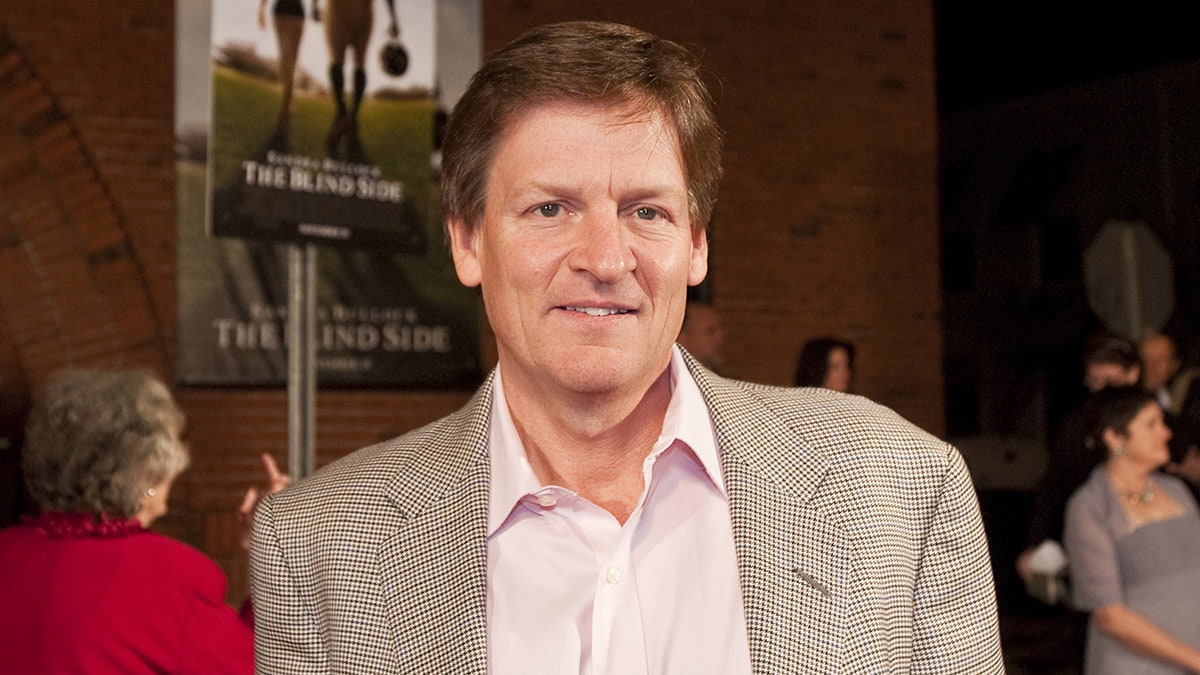The biggest thing the Oakland Athletics were known for over the last 25 years was the use of analytics to find value in players when they could not compete with teams that had bigger wallets and more money to spend in free agency.
The math-driven strategy was chronicled in the book “Moneyball: The Art of Winning an Unfair Game,” written by Michael Lewis. The author wrote about the 2002 A’s team led by Art Howe and Billy Beane and how an analytical approach helped the team to 103 wins and a division title, but ultimately, an American League Division Series exit.

Author of “The Blind Side: Evolution of a Game” Michael Lewis attends the “The Blind Side” benefit premiere at the Prytania Theatre on Nov. 19, 2009 in New Orleans. (Getty Images)
Before the 2002 season, the team lost Johnny Damon to the Boston Red Sox, Jason Giambi to the New York Yankees and Jason Isringhausen to the St. Louis Cardinals after winning 103 games in 2002. The team still had Miguel Tejada, Tim Hudson, Barry Zito, Mark Mulder and Eric Chavez holding it down for them.
More than 20 years later, other franchises combined the “Moneyball” idea with big money payroll. It is something the Los Angeles Dodgers, San Francisco Giants and New York Yankees have used in recent years to find an edge.
Lewis admitted in an interview with the San Francisco Chronicle that he thinks the “Moneyball” approach to the game was ultimately bad for baseball.
CC SABATHIA SHARES HIS YANKEES CATALYST THIS POSTSEASON, NATIONAL LEAGUE PENNANT WINNER PREDICTION

Oakland Athletics catcher Shea Langeliers, #23, scores a run against the New York Yankees in the first inning at the Oakland-Alameda County Coliseum in Oakland, California, on Sept. 22, 2024. (Cary Edmondson-Imagn Images)
“I think that’s true. It turns out that the smart way to play baseball is boring,” Lewis told the paper. “Don’t steal bases. Don’t swing at bad pitches. Position fielders so the ball is hit right to them. It does make what is already a pretty sedentary sport less kinetic. … They are kind of addressing it now, making the bases bigger, not letting people shift. The problem is that it’s already a slow sport in an age that doesn’t like slow sports and if you’re going to do it smart, you make it slower.
“It’s much less fun having geeks from MIT running the baseball team than it was having colorful tobacco-chewing former players who you knew. It’s much less fun when the manager is clearly less important, more like a middle manager. The way reason permeated the front offices has bled onto the field, and the players are more reasonable, more rational and not likely to go off half-cocked. Could you imagine if Al Hrabosky rolled into baseball now? It would be fun to watch, but it would be just like, ‘Oh, that’s weird. That’s not optimal.’”
He added that he “kind of” agreed that “Moneyballing baseball” made it “more boring.”
Dodgers general manager Andrew Friedman and Yankees general manager Brian Cashman both credited Beane for the trailblazing new look at how to run an organization.

Oakland Athletics general manager Billy Beane addresses the media during a press conference following designated hitter Hideki Matsui, not pictured, signing with the Athletics at Oakland-Alameda County Coliseum in Oakland, California, on Dec. 14, 2010. (Kyle Terada-USA TODAY Sports)
The A’s will wrap up their likely final season in Oakland before moving to Sacramento next year on their way to their next eventual home – Las Vegas.
Follow Fox News Digital’s sports coverage on X, and subscribe to the Fox News Sports Huddle newsletter.
https://www.foxnews.com/sports/moneyball-author-makes-stunning-admission-about-analytics-use-baseball


